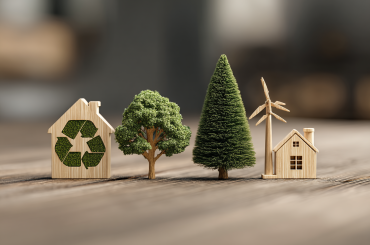Walking down my local high street last Saturday morning, dodging between farmers market stalls and queuing at the independent coffee shop where they know my order before I speak, I had one of those moments of clarity about how dramatically my shopping habits have changed. Two years ago, I was the person who ordered everything online without thinking twice, prioritizing convenience and price over every other consideration. Now I’m somehow the neighbor who can recommend the best local suppliers for everything from sourdough to bicycle repairs, and honestly? The transformation has been one of the most rewarding aspects of my sustainability journey.
The shift began when I started researching an article about food miles and realized I had absolutely no idea where most of my purchases came from or how they reached me. My weekly shop involved products that had traveled thousands of miles, passed through countless intermediaries, and contributed to supply chains I couldn’t begin to understand. The disconnect felt increasingly uncomfortable as I wrote about environmental responsibility while participating in consumption patterns that seemed to contradict everything I claimed to value.
How does supporting local businesses help the environment became the first question that sparked serious investigation. The transportation emissions alone proved staggering when I calculated the carbon footprint of my typical weekly purchases. Apples from New Zealand, cheese from France, cleaning products manufactured in China—every item represented fossil fuel consumption and greenhouse gas emissions that could be dramatically reduced through local sourcing. But the environmental benefits extended far beyond just transport emissions.
Local businesses typically use less packaging than products designed for long-distance shipping and extended shelf life. The vegetables I buy from the farmers market come loose in my own bags rather than wrapped in multiple layers of plastic. Local makers often prioritize sustainable materials and production methods because their environmental impact affects the communities where they live and work. There’s accountability that exists when producers and consumers share the same local environment.
Supporting local economies creates economic multiplier effects that I hadn’t fully appreciated until researching the actual numbers. When I spend £100 at a local business, roughly £68 stays in the community through local wages, local suppliers, and local services. The same £100 spent at a chain store keeps only about £43 locally, with the remainder flowing to distant shareholders and corporate headquarters. This circulation strengthens the entire local economic ecosystem rather than just benefiting individual businesses.
The employment impact became personally relevant when I witnessed how new local businesses revitalized previously empty shopfronts in my neighborhood. Small businesses create jobs that often provide more flexible working conditions and stronger community connections than corporate employment. Plus, local business owners tend to live locally, meaning their success contributes to property values and community investment rather than enriching distant executives.
How can I support local businesses that are committed to sustainability required developing new shopping strategies and discovering resources I hadn’t known existed. Local business directories, farmers market websites, and community social media groups became essential tools for finding suppliers who aligned with my environmental values. I learned to plan shopping trips around market schedules rather than expecting everything to be available instantly.
The learning curve involved adjusting expectations about convenience, selection, and sometimes price. Local businesses can’t always match the rock-bottom pricing of global corporations, but calculating true cost including environmental impact, supporting wages, and community benefits often makes local options competitive. Plus, the quality differences were immediately apparent across most product categories I tried.
Building relationships with local business owners transformed shopping from anonymous transactions to social interactions that enriched daily life. The baker started setting aside the sourdough I preferred, the greengrocer would suggest recipes for unusual vegetables, and the bookshop owner recommended titles based on my previous purchases. These connections created genuine community ties that made neighborhood feel more like home than just where I happened to live.
The diversity available through local suppliers exceeded expectations once I started actively seeking it out. Instead of choosing between identical products from different corporate brands, I discovered unique items that reflected local culture, traditions, and craftsmanship. Handmade soaps using local herbs, pottery created by neighborhood artists, preserves made from regional fruit varieties—each purchase became an investment in cultural preservation alongside economic support.
Seasonal eating patterns emerged naturally when sourcing from local producers who offered what was actually growing rather than maintaining artificial year-round availability through global supply chains. This forced adaptation to natural rhythms that initially seemed restrictive but gradually became enjoyable. Anticipating strawberry season or the first asparagus of spring created excitement about food that had been missing from standardized shopping experiences.
The transparency available through local sourcing provided unprecedented insight into production methods, working conditions, and environmental practices. I could visit the farm where my vegetables grew, meet the people who made my bread, and understand exactly how my purchases supported local employment and environmental stewardship. This knowledge enabled more informed and ethical consumption decisions.
Community events became essential for discovering new local businesses and connecting with producers directly. Farmers markets, craft fairs, and local business showcases provided opportunities to learn about sustainable practices, ask questions about production methods, and build relationships with makers. These gatherings created social connections around shared values of community support and environmental responsibility.
The cost considerations proved more nuanced than simple price comparisons. While some local products cost more upfront, the quality often justified higher prices through durability, superior performance, or better health outcomes. Local food stayed fresh longer, reducing waste from spoilage. Local services often included expertise and follow-up support that prevented costly mistakes or additional purchases.
Supporting local economies requires balancing idealism with practical constraints of modern life. Not everything can be sourced locally, and sometimes convenience or necessity demands compromising on local-first principles. I’ve learned to prioritize local sourcing for frequently purchased items while accepting that some specialized products require broader supply chains.
The ripple effects of supporting local businesses extended beyond just economic impact to include social and cultural benefits. Local businesses often sponsor community events, support local charities, and provide gathering spaces that chain stores rarely offer. They contribute to neighborhood character and identity in ways that standardized corporate outlets cannot replicate.
Technology integration helped optimize local shopping through apps that identify nearby businesses, websites that coordinate local delivery services, and social media groups that share recommendations and coordinate group purchases. These tools made local sourcing more convenient while maintaining the personal connections that distinguish local commerce from anonymous online shopping.
Environmental education happened naturally through relationships with local producers who could explain sustainable practices, seasonal availability, and regional growing conditions. Learning from people who understood local ecosystems provided knowledge applicable to home gardening, waste reduction, and resource conservation that wouldn’t have been available through conventional retail channels.
The community resilience demonstrated during various challenges revealed the practical benefits of strong local business networks. When global supply chains experienced disruptions, local producers continued serving their communities with minimal interruption. Local businesses could adapt quickly to changing conditions while maintaining personal relationships with customers during uncertain times.
Cultural preservation became an unexpected benefit of supporting local makers who maintained traditional skills and knowledge that would otherwise disappear. The local potter using regional clay, the baker maintaining sourdough cultures passed down through generations, and the textile maker using traditional techniques all represented irreplaceable cultural assets worth protecting through conscious consumption choices.
Innovation flourished in local business environments where makers could experiment with new ideas, respond quickly to customer feedback, and adapt products to local preferences. Local businesses often led sustainability initiatives because environmental stewardship connected directly to community wellbeing rather than distant shareholder profits.
Looking back on two years of systematically supporting local economies, the transformation has been profoundly positive for both personal satisfaction and community connection. Shopping has become a form of civic engagement rather than just acquisition of goods and services. The quality of daily life improved through better products, meaningful relationships, and deeper connection to place.
Current local shopping routine represents careful balance between supporting community businesses and practical necessities of modern life. Weekly farmers market visits, regular stops at specialty shops, and ongoing relationships with service providers create a rhythm that feels sustainable both economically and environmentally. This approach demonstrates that community gardens and local commerce principles can transform daily routines.
The future of local economies depends partly on conscious consumer choices that demonstrate market demand for community-based alternatives to global chains. Each decision to support local businesses contributes to economic viability of enterprises that provide employment, maintain community character, and offer alternatives to standardized consumption patterns.
My journey into supporting local economies proves that individual shopping decisions can create meaningful positive impact when multiplied across communities. The benefits include stronger local economies, reduced environmental impact, preserved cultural traditions, and enhanced social connections that make neighborhoods more resilient and satisfying places to live.
What started as curiosity about food miles has become genuine enthusiasm for supporting local businesses that create economic opportunity while respecting environmental limits. The challenge and reward of building sustainable local relationships demonstrates how personal choices can contribute to community wellbeing while creating daily experiences that feel more meaningful and connected than anonymous global consumption.




